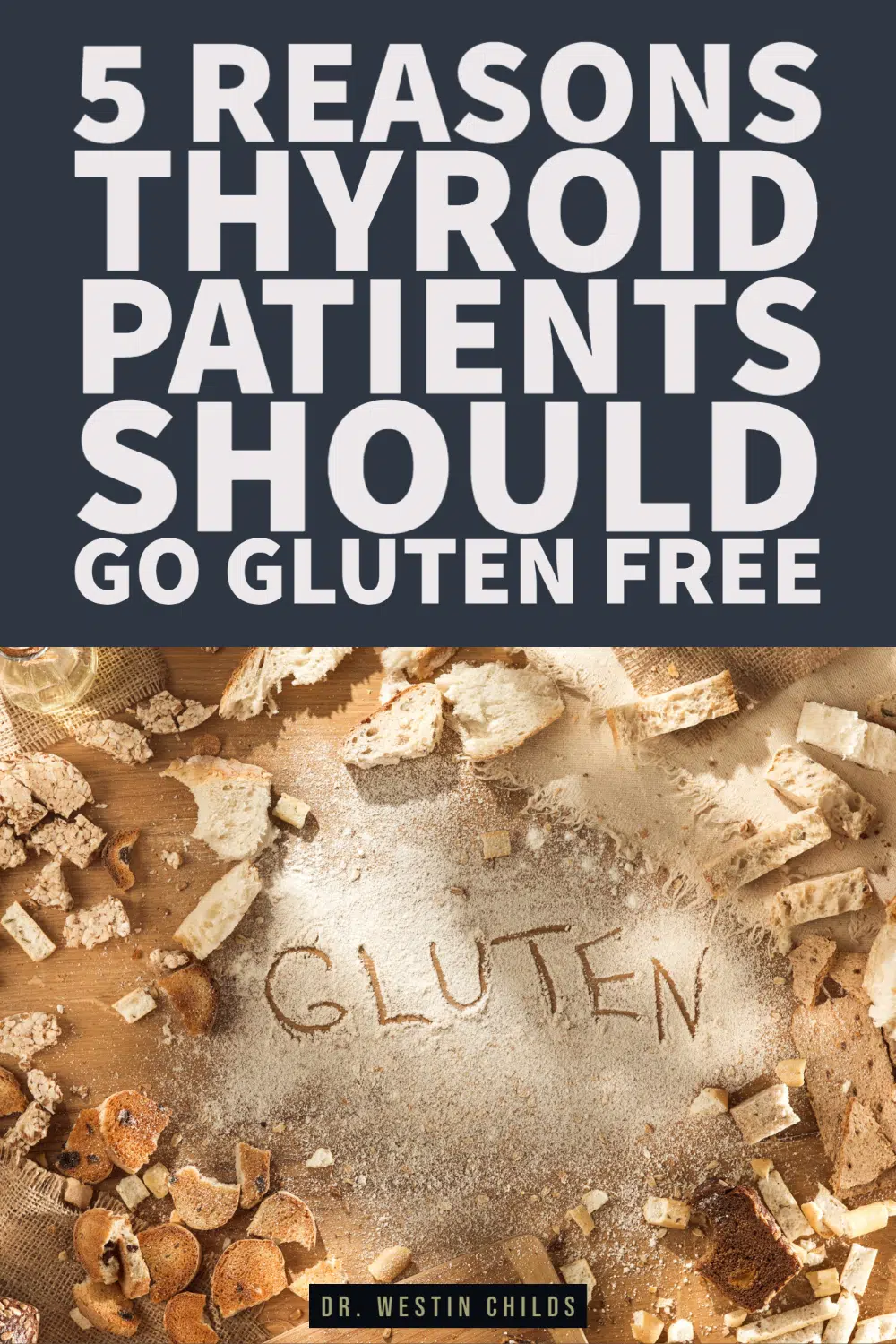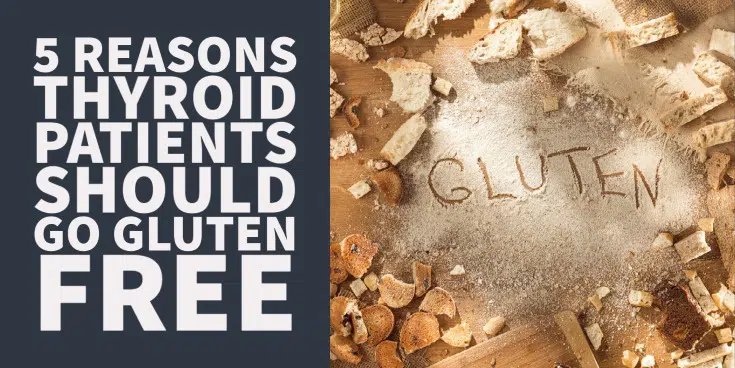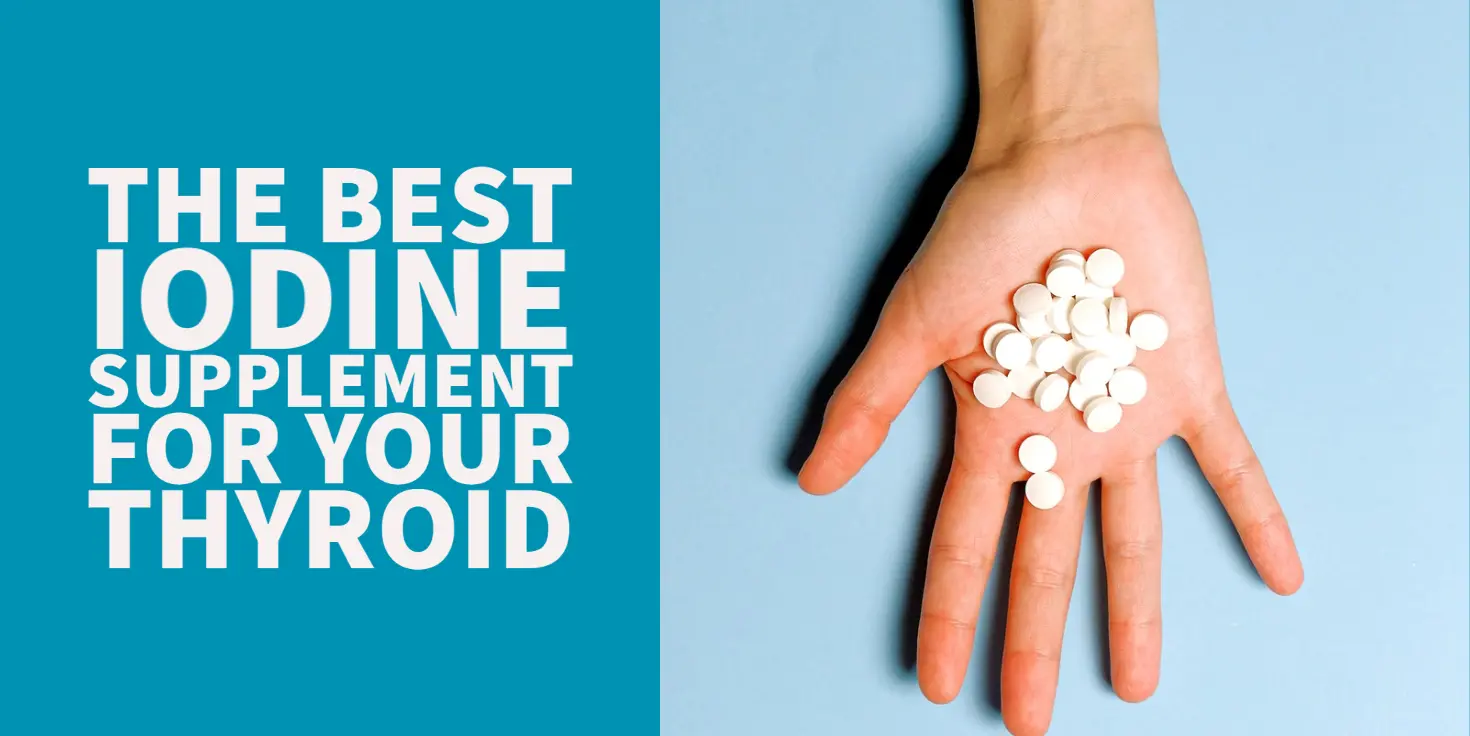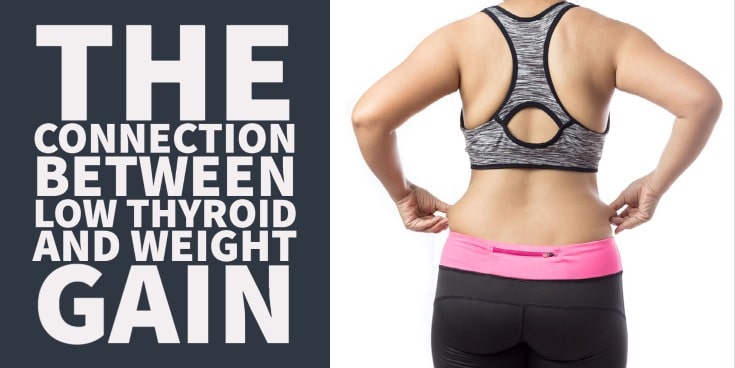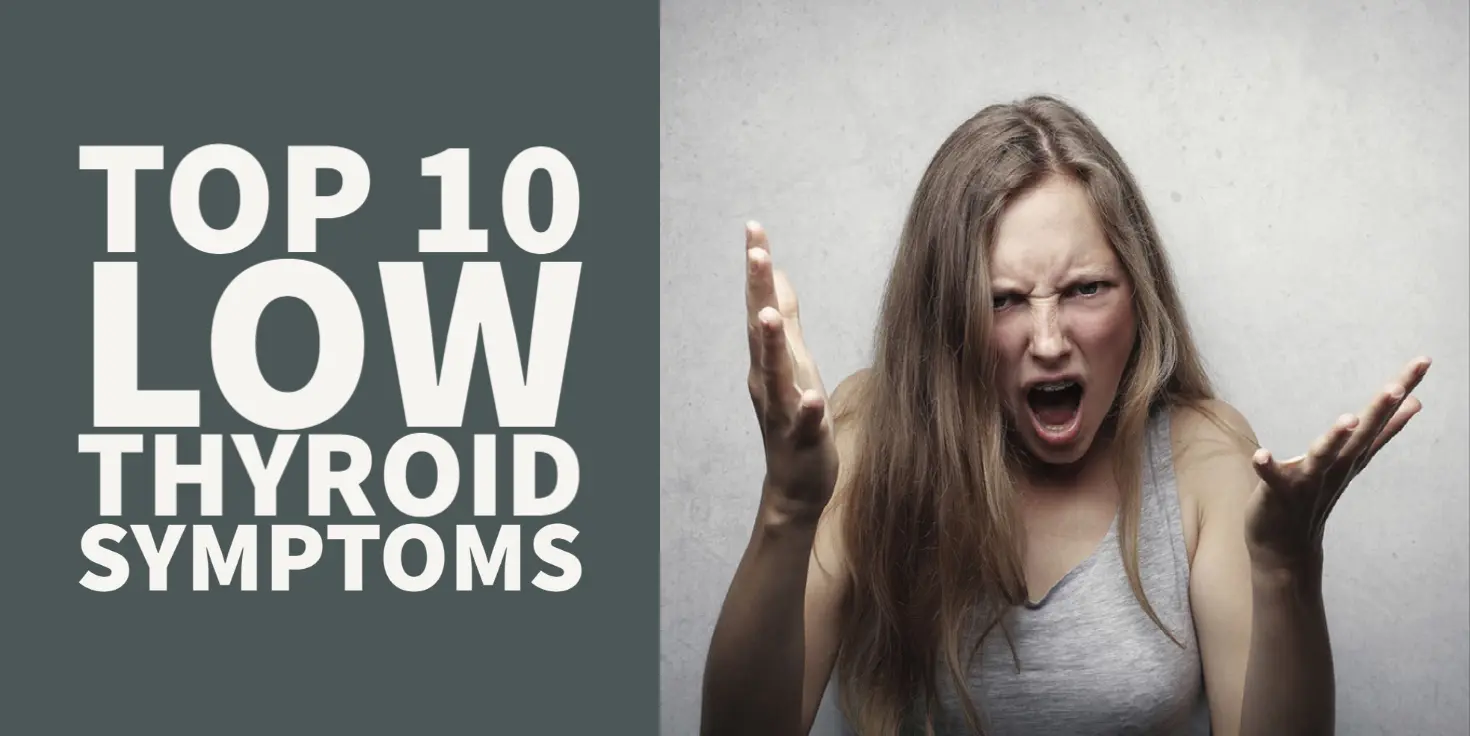If we go back in time just a few years ago, the gluten-free diet was pretty much in its prime.
Every natural practitioner was recommending gluten-free to treat things like autoimmune disease, and thyroid problems, and some even recommended it for weight loss.
Fast forward a few years and where are we now?
Well, the gluten-free diet is no longer in the spotlight and, instead, it has been replaced by the keto diet.
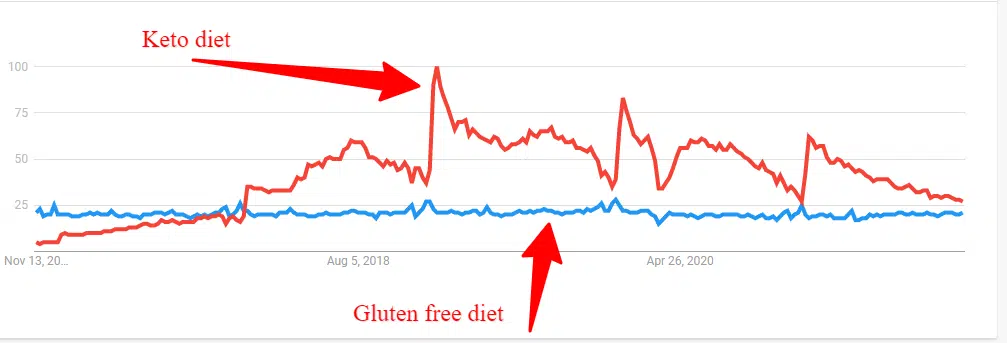
Dietary trends definitely fluctuate over time, so this is no surprise, but what is a surprise is just how quickly people moved from the gluten-free diet to other types of diets.
Today I want to focus on the gluten-free diet as it relates to thyroid function and here’s why:
There’s no question that going gluten-free has the potential (keyword potential) to help improve thyroid function, especially in the setting of Hashimoto’s thyroiditis.
Because of the popularity of the gluten-free diet in previous years and because some people found it helpful, it was pushed onto people who probably didn’t need to be on it.
As a result, fewer people are using the gluten-free diet and now some people believe it’s a myth that going gluten-free can impact your thyroid.
And while it is true that going gluten-free is not always necessary for all thyroid patients, I believe there’s still a strong case that all thyroid patients should at least consider it.
When I mention thyroid patients, I am referring to ALL thyroid patients including people who have hyperthyroidism, hypothyroidism, Graves’ disease, Hashimoto’s thyroiditis, and even you, if you’ve had your thyroid removed or ablated.
All of these thyroid conditions may benefit from going gluten-free and I’ll explain why in this article.
Today you will learn:
- Why going gluten-free can benefit you as a thyroid patient
- How it can impact your overall health even if you don’t have Celiac disease or non-celiac gluten sensitivity
- Why many thyroid patients report that they feel better on the gluten-free diet
- And how going gluten-free has the potential to help with weight loss
Let’s jump in…
The Case That All Thyroid Patients Should Be Gluten-Free (Or at Least Try it)
As I mentioned previously, the data is quite clear that going gluten-free in the setting of thyroid autoimmunity is probably a good idea.
This means if you have Graves’ disease (the autoimmune thyroid disease that causes hyperthyroidism) or Hashimoto’s (the autoimmune thyroid disease that causes hypothyroidism), there’s a good chance that you’ve probably already tried going gluten-free.
But what about other thyroid conditions?
What about people who do NOT have thyroid autoimmunity?
What about people who no longer have a thyroid?
What about people who have a low thyroid from an unknown cause?
Believe it or not, going gluten-free still has the potential to help these people as well.
Let’s talk about why:
#1. The Majority of Cases of Hypothyroidism are Caused by Hashimoto’s Thyroiditis.
When you look at the primary cause of hypothyroidism (low thyroid function) you will find that the majority of cases are caused by Hashimoto’s thyroiditis (1).
We don’t have an exact percentage or number but it’s estimated that up to 90% of people with hypothyroidism in the United States have thyroid autoimmunity.
As I mentioned previously, it’s quite clear that going gluten-free is usually beneficial (2) for most people who have Hashimoto’s thyroiditis or other autoimmune diseases of the thyroid gland because of the interaction between gluten and gut health.
Consuming gluten has been shown to cause damage to the gut lining (3) which may allow for particles of bacteria to enter into your body and trigger the immune response.
In addition, a significant number of people with Hashimoto’s also suffer from the autoimmune disease Celiac disease (4).
Whenever you have one autoimmune disease you are more likely to develop others.
So purely from a statistical standpoint, if you are someone with low thyroid function living in the United States (or another developed country) there’s a HUGE chance that your low thyroid is caused by Hashimoto’s.
Some people, when they hear this will say, “Well, it can’t be me because my doctor would have told me if that was the case”.
I wish you were right but, unfortunately, most doctors aren’t even checking for it!
Doctors aren’t really concerned or interested in diagnosing Hashimoto’s because, to them, it doesn’t change your treatment.
This means most patients are diagnosed with low thyroid function but the cause of that low thyroid function is never investigated.
For many people, this means that they likely do have Hashimoto’s but they’ve just never had the correct tests checked in order to diagnose the condition.
To make matters more complicated, there’s another condition known as seronegative Hashimoto’s.
In this condition, you can have Hashimoto’s but your thyroid antibody lab tests will be negative (hence the name seroNEGATIVE Hashimoto’s).
If we were to biopsy the thyroid gland of these people it would show up as Hashimoto’s (5) but the presence of Hashimoto’s doesn’t show up in their blood or lab tests.
When you combine these two things together, it’s likely that the incidence (number of people with Hashimoto’s) is probably underreported.
#2. Going Gluten-Free Limits Your Diet and May Help You Keep Your Dietary Goals.
There’s no question that the food that you put into your body has either a positive impact or a negative impact on your overall health.
This same logic extends to thyroid function.
Put another way, we can definitively say that eating more green vegetables is better for your body and health than eating processed or fast food.
I don’t think anyone reading this would argue with that statement (though if you feel like you want to please leave a comment below!).
Assuming this is true, and it is, it makes sense that anything that pushes you toward eating more healthy food would positively impact your health and your thyroid gland.
Pretty much everyone knows that this is true but, for a variety of reasons, most people are NOT practicing it.
Even though you know, for instance, that eating a whole pizza is not as good for you as consuming some steamed vegetables with wild-caught salmon, many people still choose pizza!
Why is that? Why do people still prefer to eat unhealthy alternatives over healthier options that CAN help them feel better?
Some people will say that it’s because these people lack the required willpower.
I don’t think that’s true at all.
I think it has more to do with community, education, and having a solid understanding of why things are helping your own body.
And that’s exactly why going gluten-free may help.
Because it imposes a certain set of restrictions on what you can and can’t eat, and because there’s so much information detailing how to live a gluten-free lifestyle, it’s one of the easier diets to follow.
Put another way, it may not be going gluten-free that is actually helpful Instead, it may be that getting connected with the community and learning how to live the lifestyle will help you eliminate unhealthy foods and change your old habits.
If the net effect of going gluten-free is consuming healthier foods while simultaneously avoiding processed and refined foods, well, you are heading in the right direction!
Another reason the gluten-free diet may be beneficial is that it’s one of the easier types of diets to follow.
Glutenful foods have been well documented and tested and there are entire websites that walk you through exactly how to go gluten-free including potential pitfalls to avoid.
I remember when I first went gluten-free (for another autoimmune disease unrelated to the thyroid) I used these websites to help me understand everything.
There are other diets that have the potential to help you feel better but these diets can get complicated in a hurry.
If I told you to go “keto” tomorrow, you would find in your research that there are many types of keto including unhealthy versions filled with processed foods.
There are lots of different ways and methods to do the keto diet and they aren’t all equally beneficial.

If you start to research a new diet and find the information confusing then you may end up right back where you started which is eating unhealthy foods.
The gluten-free community that exists largely solves this problem and may help you live a healthier lifestyle even if gluten isn’t your biggest issue.
Before we move on, I do have to say that it is still possible to eat unhealthy versions of the gluten-free diet!
It tends to be more involved and more expensive to get unhealthy gluten-free foods but it is still possible.
So if you are going gluten-free to improve your lifestyle and eating habits then make sure you do NOT go down that path!
#3. There’s Nothing to Lose by Going Gluten-Free for 90 Days.
When I talk about going gluten-free for purposes of this article, I really mean giving the gluten-free diet an honest shot for at least 90 days.
When you look at it through this lens, there’s virtually no risk or harm.
I’ve spent a lot of time researching the potential downsides to going gluten-free and there aren’t many (6).
Some people will claim that a gluten-free diet is devoid of nutrients and may result in nutrient deficiencies.
They state this because many gluten foods are fortified with various vitamins.
But this isn’t an issue as long as you are eating mostly whole foods.
Next, some will say that going gluten-free may be harmful because it doesn’t contain enough fiber.
Again, this isn’t a big issue because you can still consume rice, potatoes, brown rice, and beans which contain high amounts of fiber (if that was an issue for you) as these are all gluten-free foods.
On perhaps a more serious note, some people have claimed that there is a link between eating gluten-free foods and developing type II diabetes.
A study in 2018 suggested that such a link exists (7).
There are definitely limitations with this study but even assuming that it is true, there’s no way that you would develop type II diabetes on a gluten-free diet in just 90 days.
Lastly, some people try to claim that going gluten-free will lead to weight gain.
The logic goes something like this:
Even though going gluten-free usually removes the #1 source of carbohydrates and sugars from your diet, it’s still possible to consume a lot of these foods by eating gluten-free versions.
And these gluten-free versions (of things like pasta, pastries, cookies, etc.) contain more calories are sugars compared to glutenful alternatives.
This argument does have some truth to it but as long as you are someone that doesn’t consume those unhealthy foods then there’s nothing to worry about.
It’s been my experience that most people who go gluten-free tend to lose weight rather than gain weight which we will talk more about below.
All in all, it seems that people struggle to come up with reasons why going gluten-free is harmful and end up making strange claims about the potential for negative side effects.
The truth is that there is nothing inherently harmful about going gluten-free and, on the contrary, has the potential to help a significant number of people who try it.
These people may experience positive benefits ranging from improved gut health, to better brain function, to better thyroid function, and everything in between.
Even if we wanted to agree that there may be some issues in going gluten-free, these issues would only manifest in the long term and not in the short term.
In other words, the downsides to going gluten-free would only be present if someone was on this type of diet for many years.
And the type of person likely to be on the diet for several years is someone who decided that the advantages of going gluten-free outweigh the downsides so any potential problems would be mitigated by the benefits.
My general recommendation for thyroid patients is this:
If you are having issues with managing your thyroid medication or experiencing gut problems of an unknown cause then give yourself a trial of going gluten-free for 90 days.
#4. Many Thyroid Patients Report Feeling Better on a Gluten-Free Diet.
Normally I don’t recommend looking at what other thyroid patients are doing as a barometer for what types of things you should be doing but in this case, it’s worth making an exception.
Here’s why:
When we take thyroid patients and ask them questions about what types of therapies, what types of diets, and what types of supplements are working for them we continually hear the same response:
A huge percentage of thyroid patients who go gluten-free see improvement on this diet.
This percentage ranges anywhere from 50 to 70% of thyroid patients, depending on how many people you ask and what type of thyroid problem they have.
Obviously, those who have Hashimoto’s thyroiditis tend to report better improvement going gluten-free compared to other thyroid patients such as those without a thyroid, but even other thyroid populations do see improvement.
Why is this important?
Because it can be a confusing world for thyroid patients.
If you spend any significant time researching thyroid problems and looking around on the internet for answers, you will find a lot of conflicting information.
This conflicting information can sometimes lead to confusion and result in you not making any changes because you aren’t sure which changes to make.
In this situation, understanding what has worked for other thyroid patients can give you some confidence that going gluten-free isn’t some trend and may actually help.
Obviously, just because it has worked for other thyroid patients in the past doesn’t guarantee that it will work for you, but it is helpful to know what sort of things are currently working for other thyroid patients.
You can then use this information to help guide your future choices and treatment options.
#5. Going Gluten-Free Usually Helps Reduce Carb Intake Which May Help with Weight Loss and Insulin Resistance.
One of the biggest symptoms associated with low thyroid function is weight gain.
There are many reasons why this occurs but one of the bigger reasons has to do with something called insulin resistance.
Insulin resistance is the condition that occurs with the overconsumption of excess carbohydrates and sugar.
If untreated or unaddressed, insulin resistance leads to weight gain, problems with cholesterol, metabolic syndrome (8), and, eventually, type II diabetes.
Gluten-containing food such as bread, pasta, cereal, etc. also come with high amounts of carbohydrates and can easily result in excess sugar consumption without you even realizing it.
And because these ingredients are cheap (usually in the form of wheat), they are easy to purchase, easy to consume, and can lead to serious problems over decades of consumption.
When you go gluten-free, these types of foods are no longer allowed.
Sure, there are gluten-free alternatives to things such as bread and pasta, but these options are usually more expensive and often don’t taste as good as their wheat counterparts.
As a result, most people who go gluten-free end up entirely removing these types of foods from their diet and must replace them with other options.
When it’s suddenly not as easy as going to the grocery store to buy some bread for a sandwich at lunch, you are forced to make changes to what type of foods you eat and what types of foods you prepare.
For most people, this is a GOOD thing as it results in the intake of fewer carbohydrates and BETTER insulin control.
Better insulin control results in improved blood sugar, better cholesterol levels, and more weight loss.
In addition to better insulin control, thyroid patients often also see better immune control as they remove potential sources of inflammation in the form of inflammatory industrial seed oils and preservatives from processed foods.
If you are someone with thyroid problems AND you are having issues with managing your weight or the inability to lose weight then going gluten-free may be something you want to consider for that benefit alone.
Going gluten-free isn’t guaranteed to help you lose weight but it does have the potential to help and can be very beneficial for certain people.
You are much more likely to experience weight loss if you adopt a healthy version of the gluten-free diet as opposed to consuming the same unhealthy types of food you were eating before you went gluten-free but now in a gluten-free version.
If your new “healthy” gluten-free diet consists mostly of gluten-free cookies, pizza, chips, and bread then you are probably not much better off than you were previously!
But if you instead replace those cookies, pizza, chips, and bread with whole food alternatives which also happen to be gluten-free then you are setting yourself up for better overall health and better thyroid health.
Wrapping it Up
Let me wrap this up by saying that I don’t think everyone who has a thyroid problem MUST go gluten-free.
My concern, though, is that there are a number of people who have thyroid conditions who are not eating gluten-free but who should and it is this group of people that I am most worried about.
Figuring out if you fall into this group is very important which is why I am writing this article.
The single best way you can determine if you need to go gluten-free is by simply adopting the gluten-free lifestyle for 90 days.
After 90 days you can re-introduce gluten into your diet and see how you feel.
If you notice no significant improvement then, well, you are probably someone who can keep on eating gluten to your heart’s content!
If, on the other hand, you notice that you feel significantly worse when you reintroduce it back into your diet then you also have your answer.
My goal has always been to help you find what works best for your body and for your thyroid and this is one way to do it.
Now I want to hear from you:
Have you ever tried going gluten-free 100% for a 90 day period?
If so, what type of differences or improvements did you notice? If it didn’t help, let me know what you experienced!
Are you someone thinking about going gluten-free? Is it something that you know you should do but have put off?
Have you tried going gluten-free to help with weight loss?
Leave your questions or comments below!
Scientific References
#1. https://www.ncbi.nlm.nih.gov/books/NBK459262/
#2. https://pubmed.ncbi.nlm.nih.gov/30060266/
#3. https://www.ncbi.nlm.nih.gov/pmc/articles/PMC3384703/
#4. https://pubmed.ncbi.nlm.nih.gov/27256300/
#5. https://www.ncbi.nlm.nih.gov/pmc/articles/PMC3016247/
#6. https://www.ncbi.nlm.nih.gov/pmc/articles/PMC5866307/
#7. https://pubmed.ncbi.nlm.nih.gov/30074058/
#8. https://www.ncbi.nlm.nih.gov/books/NBK459248/
